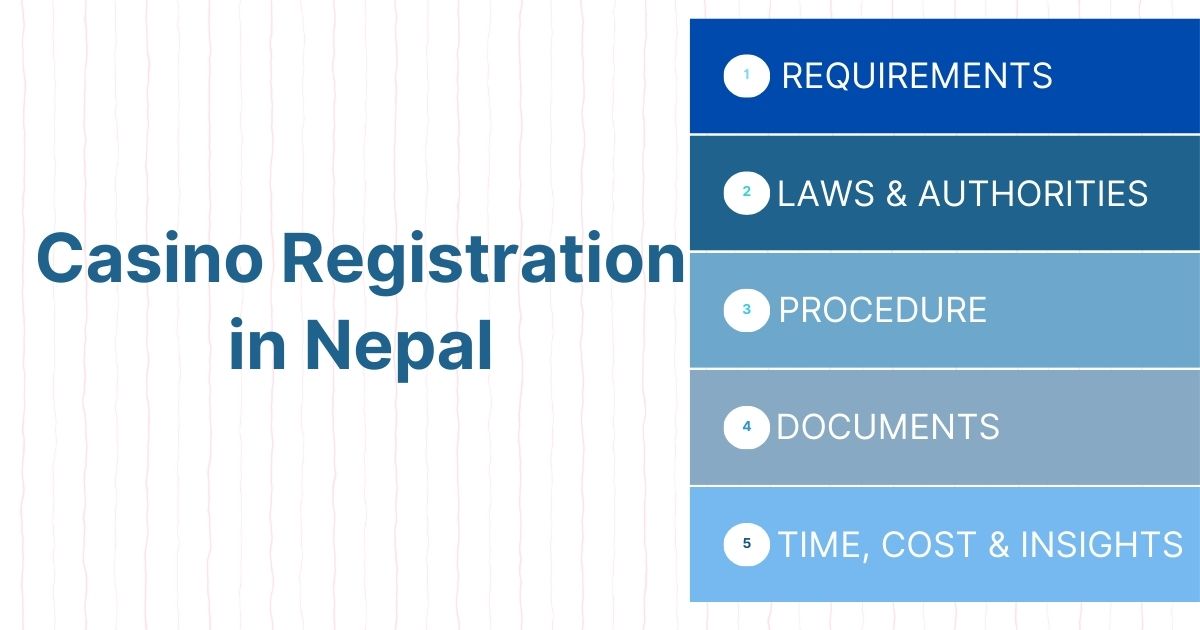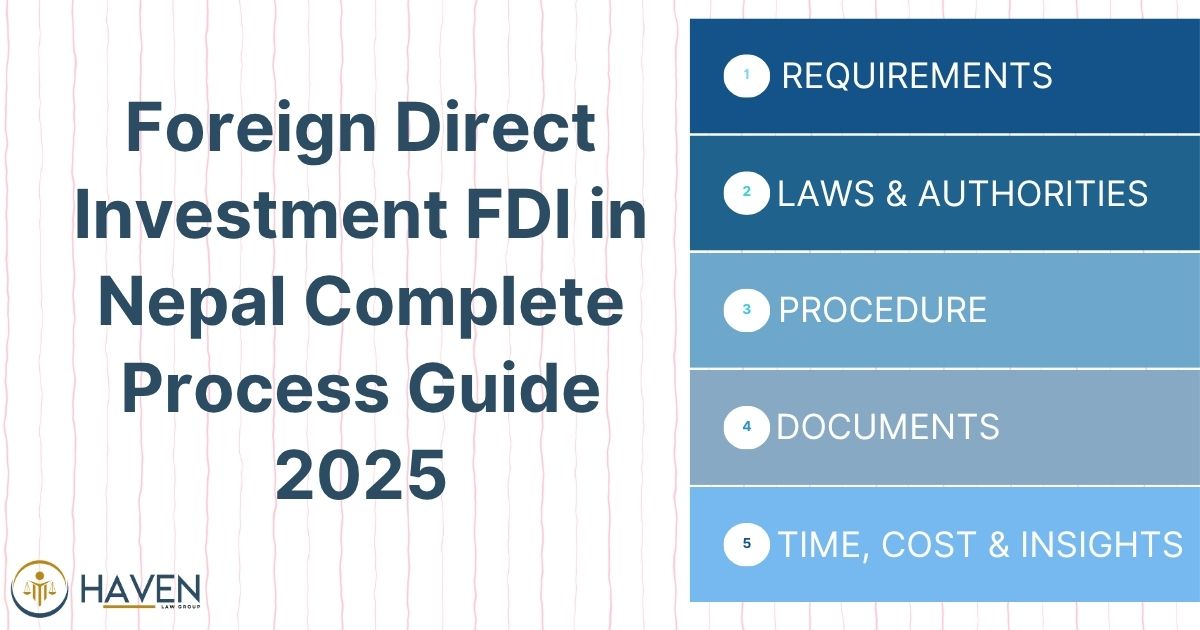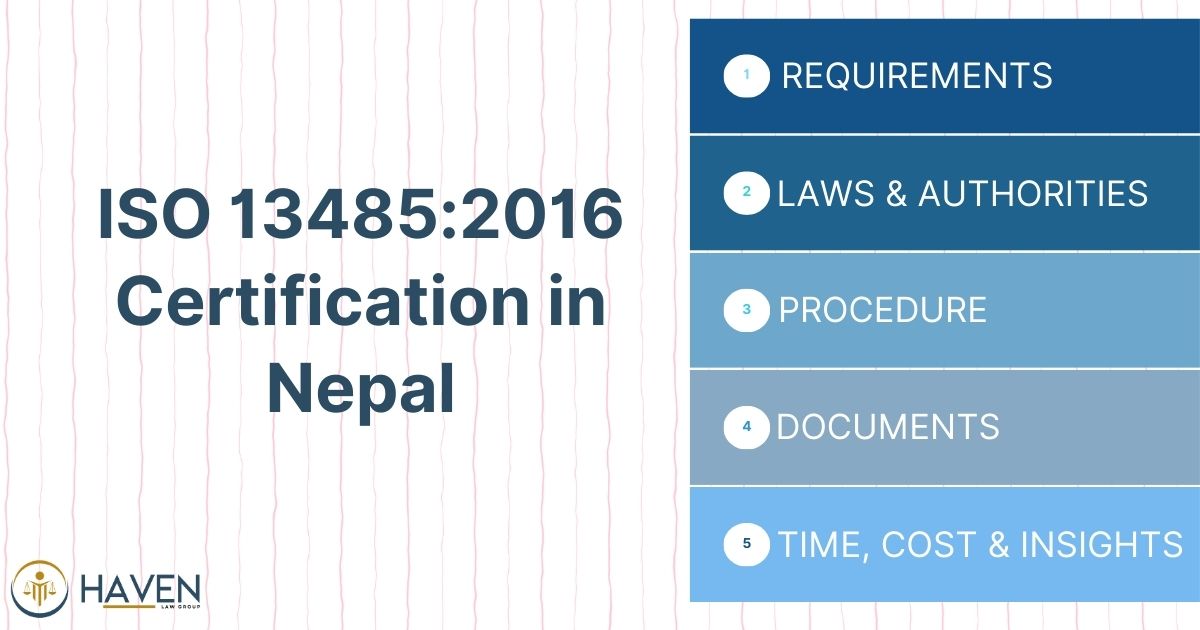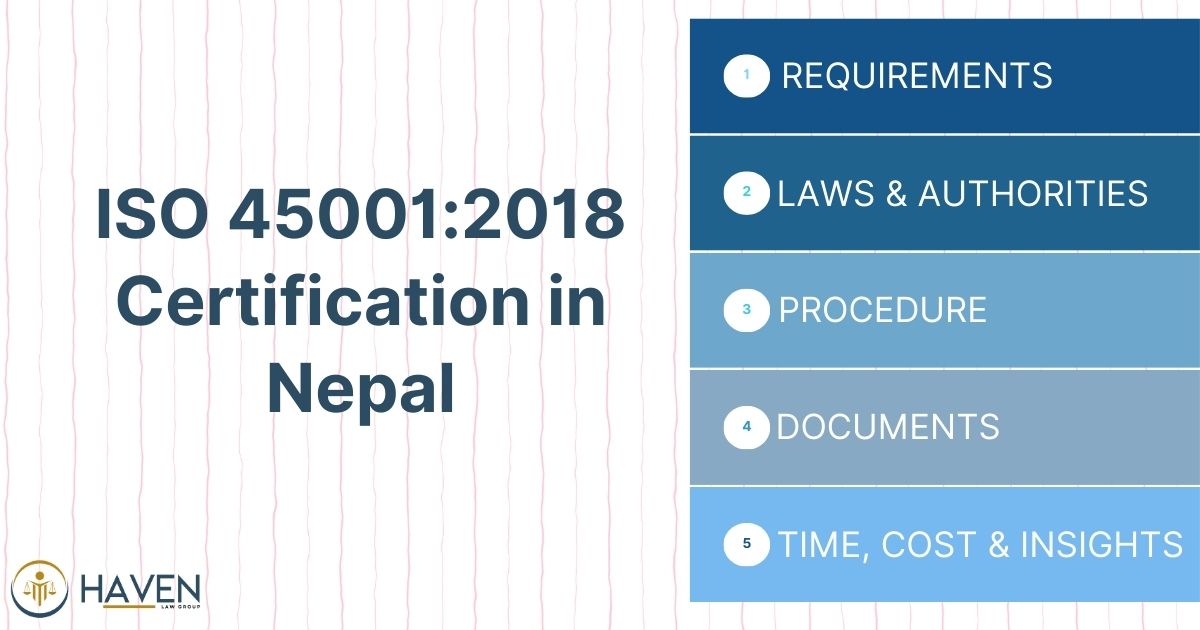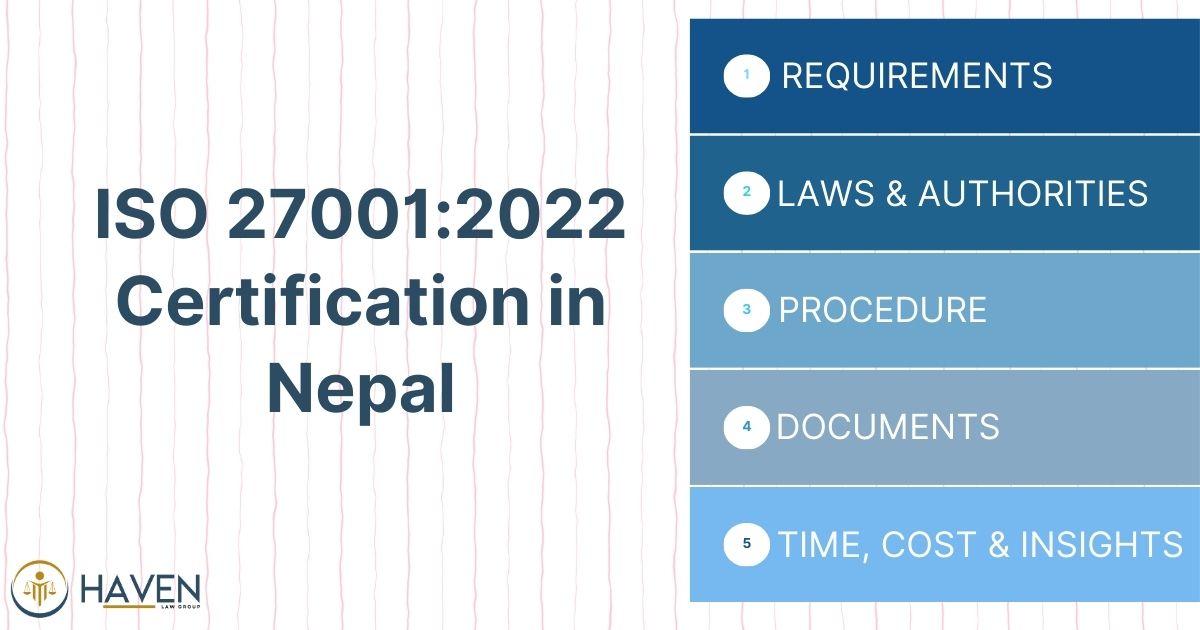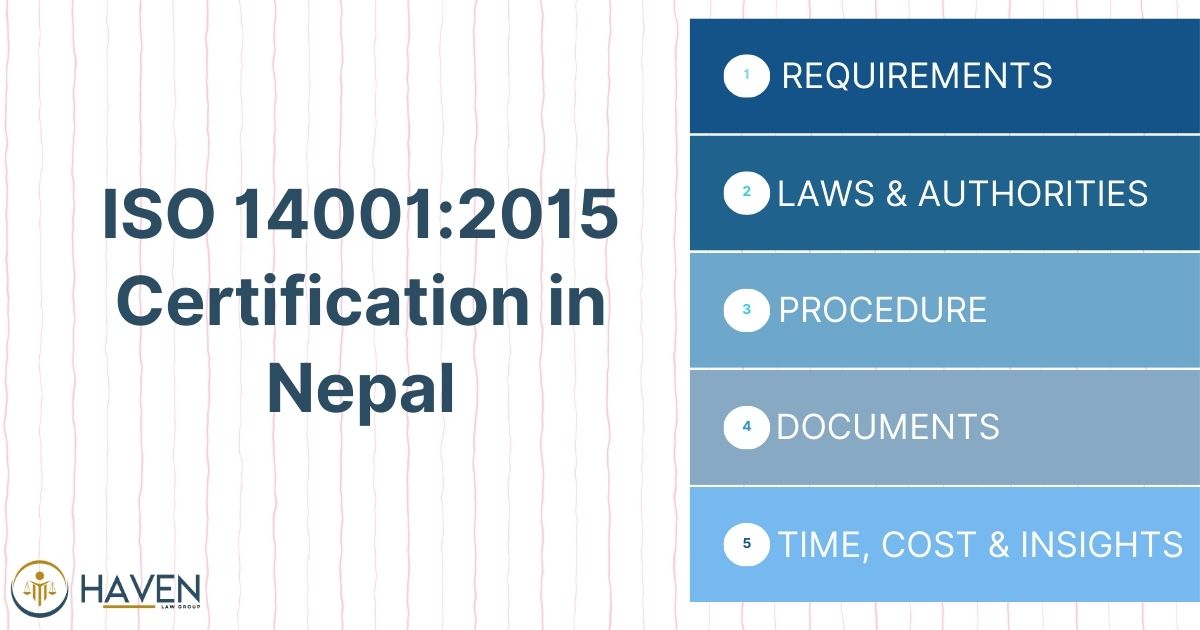What is life events registration in Nepal?
Life events registration in Nepal refers to the official recording of significant personal milestones such as births, marriages, and deaths with the government authorities. The Registration of Personal Events Act, 2033 (1976) governs this process in Nepal. The Department of National ID and Civil Registration (DoNIDCR) oversees the registration of these vital events.
Life events registration serves as a legal record and provides individuals with official documentation of their personal status. These registrations are essential for various legal and administrative purposes, including obtaining citizenship certificates, passports, and accessing government services. The process ensures accurate demographic data for national planning and policy-making.
How to register a birth in Nepal?
Registering a birth in Nepal involves several steps:
- Gather required documents:
- Birth certificate from the hospital or health post
- Parents’ citizenship certificates
- Marriage registration certificate (if applicable)
- Visit the local ward office within 35 days of the birth
- Fill out the birth registration form
- Submit the completed form along with supporting documents
- Pay the registration fee (if applicable)
- Receive the birth registration certificate
The Local Government Operation Act, 2074 (2017) mandates that births must be registered within 35 days. Late registrations are subject to additional procedures and potential fines. The registration process is free if completed within the specified timeframe.
Is marriage registration mandatory in Nepal?
Yes, marriage registration is mandatory in Nepal according to the Marriage Registration Act, 2028 (1971). The act stipulates that all marriages, whether performed through traditional, religious, or civil ceremonies, must be officially registered with the local authorities. Registration provides legal recognition to the marriage and offers protection to both spouses under Nepali law.
Couples are required to register their marriage within 35 days of the ceremony. Failure to register can result in legal complications, especially in matters related to property rights, inheritance, and divorce proceedings. The registration process helps prevent issues such as polygamy and underage marriages, as it requires verification of the couple’s eligibility to marry.
How to register a death in Nepal?
Death registration in Nepal follows these steps:
- Collect necessary documents:
- Death certificate from the hospital or health post
- Deceased person’s citizenship certificate
- Informant’s citizenship certificate
- Visit the local ward office within 35 days of the death
- Complete the death registration form
- Submit the form with supporting documents
- Pay the registration fee (if applicable)
- Receive the death registration certificate
The Registration of Personal Events Act, 2033 (1976) requires deaths to be registered within 35 days. Late registrations may incur additional procedures and fines. Death registration is crucial for legal purposes, including property transfer, insurance claims, and pension benefits. It also helps maintain accurate national demographic records.
Are life event registrations available online?
Nepal has been gradually implementing online registration systems for life events. The Department of National ID and Civil Registration (DoNIDCR) has introduced an online platform called the Vital Events Registration Information Management System (VERIMS). This system allows for the digital registration of births, marriages, deaths, divorces, and migrations.
However, the availability of online services may vary depending on the location and local infrastructure. In many areas, especially rural regions, in-person registration at local ward offices remains the primary method. The government is working to expand the online system nationwide to improve accessibility and efficiency in life events registration. Citizens are advised to check with their local authorities or the DoNIDCR website for the most up-to-date information on online registration availability in their area.
What documents are needed for life events registration?
The documents required for life events registration in Nepal vary depending on the specific event:
For Birth Registration:
- Hospital birth certificate
- Parents’ citizenship certificates
- Marriage registration certificate (if parents are married)
For Marriage Registration:
- Citizenship certificates of both spouses
- Passport-sized photographs of both spouses
- Witness statements (if applicable)
For Death Registration:
- Death certificate from hospital or health post
- Deceased person’s citizenship certificate
- Informant’s citizenship certificate
For Divorce Registration:
- Court decree of divorce
- Citizenship certificates of both parties
For Migration Registration:
- Citizenship certificate
- Proof of new address (rental agreement or property ownership document)
Additional documents may be required in specific cases, such as for foreigners or in cases of late registration. It’s advisable to consult the local ward office or the Department of National ID and Civil Registration for the most current document requirements.
Are registration fees applicable for all events?
Registration fees for life events in Nepal vary depending on the type of event and the timing of registration. Generally, the following fee structure applies:
- Birth Registration: Free if registered within 35 days; late fee applies thereafter
- Marriage Registration: Nominal fee, which may vary by municipality
- Death Registration: Free if registered within 35 days; late fee applies thereafter
- Divorce Registration: Court fees apply for the divorce process; registration fee may be charged
- Migration Registration: Nominal fee, which may vary by municipality
The Local Government Operation Act, 2074 (2017) allows local governments to set their own fee structures for these services. As a result, fees may vary slightly between different municipalities. Some local governments may waive fees for economically disadvantaged individuals or during specific registration drives. It’s advisable to check with the local ward office for the most current fee information. Late registration fees are typically higher and increase with the delay in registration.
Can life events be registered late in Nepal?
Yes, life events can be registered late in Nepal, but the process may involve additional steps and potential penalties:
- Late Birth Registration:
- Requires an explanation for the delay
- May need additional supporting documents
- Subject to a late registration fee
- Late Marriage Registration:
- Couples must provide a written explanation for the delay
- Additional verification may be required
- Late fee applies
- Late Death Registration:
- Requires a written explanation for the delay
- May need additional supporting documents
- Subject to a late registration fee
The Registration of Personal Events Act, 2033 (1976) allows for late registration but emphasizes the importance of timely registration. Local authorities may require additional verification for late registrations to prevent fraud. In some cases, particularly for significantly delayed registrations, court orders may be necessary. The government periodically conducts registration campaigns to encourage citizens to register past events without penalties. It’s advisable to register life events as soon as possible to avoid complications and additional costs.
Is a lawyer required for life events registration?
A lawyer is not typically required for standard life events registration in Nepal. The process is designed to be straightforward and accessible to all citizens. However, there are situations where legal assistance may be beneficial:
- Complex Cases: Involving citizenship issues or international elements
- Disputes: Disagreements over registration details or rights
- Late Registrations: Significantly delayed registrations requiring court intervention
- Special Circumstances: Adoptions, surrogate births, or unclear parentage
The Local Government Operation Act, 2074 (2017) empowers local authorities to handle most registration processes without legal intermediaries. However, individuals unfamiliar with the process or facing unique situations may find a lawyer’s guidance helpful. Legal professionals can assist in preparing necessary documents, navigating bureaucratic procedures, and resolving any legal complications that may arise during the registration process. While not mandatory, legal consultation can provide peace of mind and ensure compliance with all relevant laws and regulations.
Where can life events be registered in Nepal?
Life events in Nepal can be registered at the following locations:
- Ward Offices: Primary registration points for most life events
- Municipal Offices: Handle registrations and oversee ward offices
- District Administration Offices: For certain events or appeals
- Department of National ID and Civil Registration: Central authority for registration policies
The Local Government Operation Act, 2074 (2017) designates ward offices as the primary registration points for most citizens. These offices are typically the most accessible and handle the majority of routine registrations. In urban areas, municipal offices may also provide registration services. For more complex cases or appeals, district administration offices may be involved. The Department of National ID and Civil Registration oversees the entire process and may handle special cases or policy matters. In some areas, mobile registration camps are organized periodically to reach remote communities. Citizens should generally start with their local ward office for most life event registrations.
Are life events registrations updated in national records?
Yes, life events registrations in Nepal are updated in national records. The process involves:
- Local Registration: Events are first recorded at ward or municipal offices
- Data Compilation: Local offices regularly submit data to higher authorities
- Central Database: Information is entered into the national Vital Events Registration Information Management System (VERIMS)
- Data Verification: Records are cross-checked for accuracy
- National Statistics: Aggregated data is used for demographic analysis and policy-making
The Registration of Personal Events Act, 2033 (1976) mandates the maintenance of national records for all registered life events. This centralized system ensures that vital statistics are available for government planning, policy formulation, and public services. The national records are crucial for various purposes, including citizenship verification, passport issuance, and social security programs. Regular updates to these records help maintain the accuracy and reliability of national demographic data. Citizens can request certified copies of their registration details from the central database when needed for official purposes.
Can foreigners register life events in Nepal?
Foreigners can register certain life events in Nepal, but the process and requirements may differ from those for Nepali citizens:
- Birth Registration:
- Children born to foreign parents in Nepal can be registered
- Parents must provide valid passports and visas
- Marriage Registration:
- Marriages between foreigners or between a foreigner and a Nepali citizen can be registered
- Both parties must meet Nepal’s legal requirements for marriage
- Additional documentation, such as a ‘No Objection Letter’ from the respective embassy, may be required
- Death Registration:
- Deaths of foreigners occurring in Nepal can and should be registered
- The deceased’s passport and visa information are required
The Foreign Marriage Registration Act, 2028 (1971) provides guidelines for marriages involving foreign nationals in Nepal. Foreigners should consult their respective embassies and local Nepali authorities for specific requirements, as procedures may vary depending on the individual’s nationality and circumstances. It’s important to note that while these registrations are possible, they may not automatically confer Nepali citizenship or residency rights to foreigners or their children.
FAQs
1. Is late registration penalized?
Yes, late registration of life events in Nepal is typically subject to penalties. The Registration of Personal Events Act, 2033 (1976) stipulates that events should be registered within 35 days. Late registrations may incur fines, which increase with the length of delay. The exact penalty amount can vary by municipality and the type of event being registered. In some cases, particularly for significantly delayed registrations, additional procedures such as court orders may be required, potentially increasing the overall cost and complexity of the process.
2. Are fees refundable?
Generally, fees paid for life events registration in Nepal are not refundable. The Local Government Operation Act, 2074 (2017) allows local authorities to set and collect fees for these services. Once a registration process has been initiated and the fee paid, it is typically considered a administrative cost and is not returned, even if the registration is not completed or is later cancelled. However, in exceptional circumstances, such as errors made by the registering authority, a refund might be considered on a case-by-case basis. It’s advisable to confirm all requirements and ensure eligibility before paying any fees.
3. Can lawyers assist?
Yes, lawyers can assist with life events registration in Nepal, although their involvement is not mandatory for standard registrations. Legal professionals can be particularly helpful in complex cases, such as late registrations, disputes, or situations involving international elements. Lawyers can provide guidance on required documentation, help navigate bureaucratic procedures, and represent individuals in case of legal complications. Their expertise can be valuable in ensuring compliance with all relevant laws and regulations, particularly the Registration of Personal Events Act, 2033 (1976) and other applicable statutes.
4. Are minors eligible?
Minors are eligible for certain life events registrations in Nepal, primarily birth registration. The Registration of Personal Events Act, 2033 (1976) mandates that all births must be registered, regardless of the child’s age. For other events like marriage, the legal age requirements apply. In Nepal, the legal age for marriage is 20 years for both males and females, as per the Civil Code 2074 (2017). Minors cannot independently register events; a parent, guardian, or legal representative must act on their behalf. In cases involving minors, additional safeguards and verifications may be required to protect their interests.
5. Is proof of event required?
Yes, proof of the event is required for life events registration in Nepal. The type of proof varies depending on the event:
- Births: Hospital birth certificate or midwife’s statement
- Marriages: Religious or civil ceremony certificate
- Deaths: Medical certificate of cause of death or police report
- Divorces: Court decree
The Registration of Personal Events Act, 2033 (1976) requires verifiable evidence to prevent fraudulent registrations and ensure the accuracy of national records. In cases where standard proof is unavailable, alternative forms of evidence may be considered, such as witness statements or community certifications. However, these alternatives often involve additional scrutiny and may require approval from higher authorities. It’s crucial to gather and preserve relevant documentation as soon as an event occurs to facilitate smooth registration.
What is life events registration?
Life events registration is the official recording of major personal milestones like births, deaths, and marriages by government authorities.
Which life events must be registered in Nepal?
In Nepal, births, deaths, marriages, divorces, and migrations must be officially registered.
Where can I register life events in Nepal?
Life events can be registered at local ward offices or rural municipality offices in Nepal.
What documents are required for birth registration in Nepal?
For birth registration, parents need their citizenship certificates, marriage certificate, and hospital birth record or witness statement.
What happens if life events are not registered on time?
Late registration may result in fines or legal complications. Unregistered events can cause difficulties accessing government services or proving identity.
Can Nepali citizens register foreign marriages or births?
Yes, Nepali citizens can register foreign marriages or births at Nepali embassies or upon return to Nepal.


